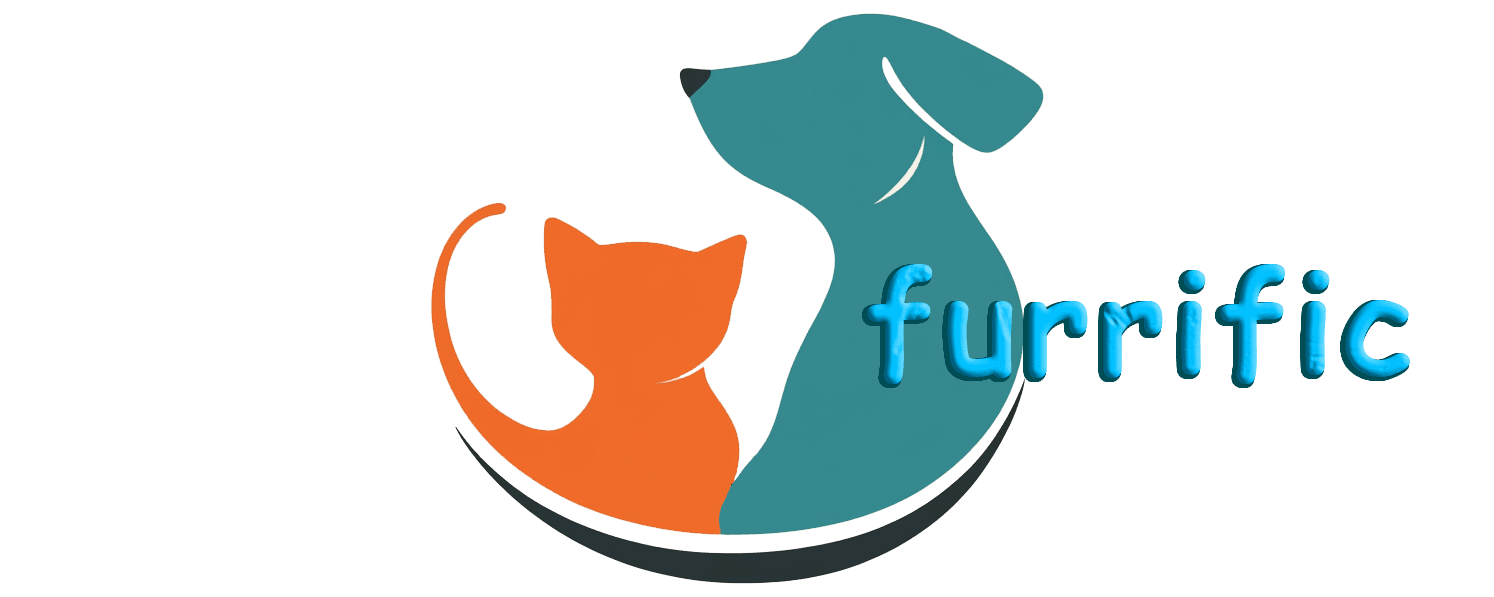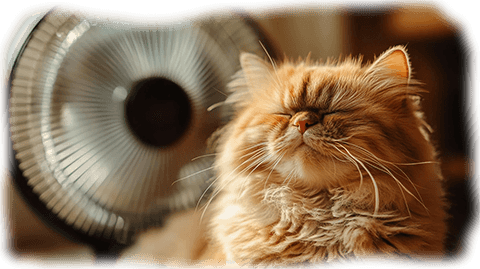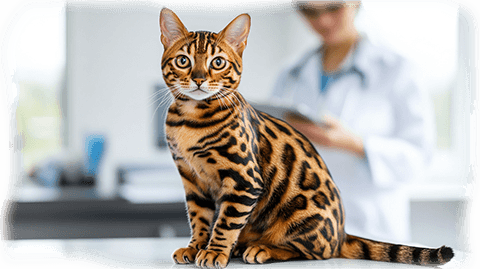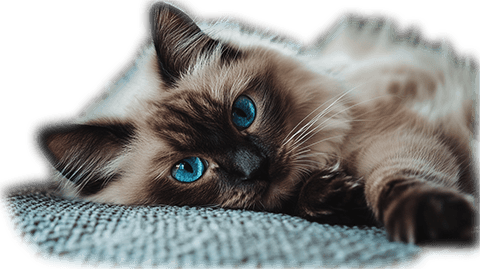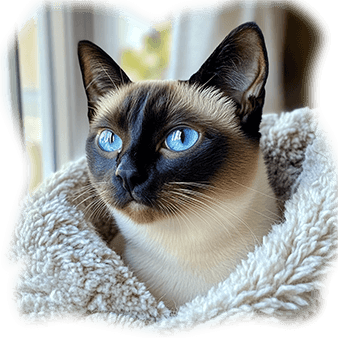Maine Coon Cats Health: A Comprehensive Guide
Maine Coon cats are known for their large size, friendly personalities, and beautiful coats. However, like all cat breeds, they are prone to certain health conditions that require attention and care. In this guide, we’ll cover the most common health issues Maine Coon cats face, preventive care tips, and signs to watch for so you can keep your Maine Coon happy and healthy.
Common Health Issues in Maine Coon Cats
While Maine Coons are generally healthy, they are predisposed to a few genetic conditions that may affect their quality of life. Here are the most common health concerns:
Hypertrophic Cardiomyopathy (HCM)
Hypertrophic Cardiomyopathy (HCM) is the most common heart condition seen in Maine Coon cats. It causes the walls of the heart to thicken, making it difficult for the heart to pump blood efficiently. HCM is hereditary, and Maine Coons are one of the breeds most at risk for this disease.
Symptoms to watch for
- Lethargy or weakness
- Rapid breathing or difficulty breathing
- Sudden collapse or fainting
- Decreased appetite or weight loss
Helpful Tips
- Regular vet check-ups, including ultrasounds and echocardiograms, can help detect HCM early.
- If you plan to adopt or breed a Maine Coon, look for breeders who screen for HCM to reduce the risk.
- Once diagnosed, treatment typically involves medications to manage symptoms and improve quality of life.
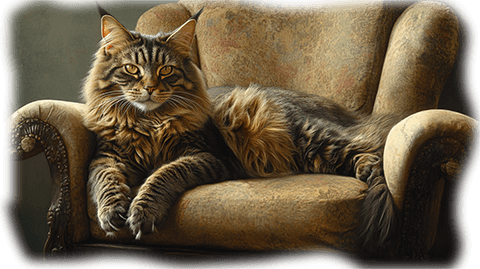
Hip Dysplasia
Though more common in dogs, Maine Coon cats can suffer from hip dysplasia due to their large size. This condition occurs when the hip joint doesn’t develop properly, leading to pain, reduced mobility, and arthritis as the cat ages.
Symptoms to watch for
- Limping or avoiding activities like jumping
- Decreased activity or reluctance to move
- Difficulty climbing stairs or getting onto furniture
Helpful Tips
- Maintain a healthy weight for your Maine Coon to reduce stress on the joints.
- Provide joint supplements, such as glucosamine (Amazon affiliate link), to support long-term joint health.
- Soft bedding and ramps can help make your cat more comfortable.
Spinal Muscular Atrophy (SMA)
Spinal Muscular Atrophy is a genetic condition that affects the muscles in Maine Coon kittens, leading to muscle weakness and mobility issues. SMA is not life-threatening, and many cats with this condition can still live long lives, but it does require monitoring.
Symptoms to watch for
- Muscle weakness or unsteady gait, especially in the hind legs
- Difficulty jumping or walking
- Muscle wasting in the legs or spine
Helpful Tips
- Ensure your cat maintains a healthy weight to reduce the strain on muscles.
- Cats with SMA can benefit from a safe environment with ramps and lower furniture.
- Regular vet check-ups can help monitor your cat’s condition and ensure they remain comfortable.
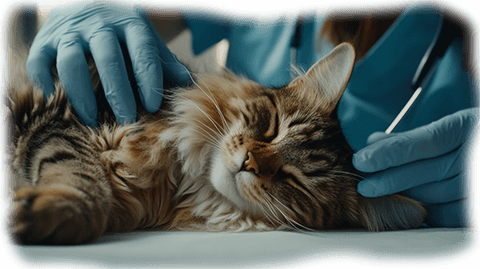
Dental Disease
Maine Coons, like all cats, are prone to dental disease, including gingivitis, plaque buildup, and periodontal disease. If left untreated, dental disease can lead to tooth loss and even affect your cat’s overall health.
Symptoms to watch for
- Bad breath
- Red or swollen gums
- Difficulty eating or chewing
- Excessive drooling or pawing at the mouth
Helpful Tips
- Regular dental check-ups and cleanings at the vet can prevent serious dental issues.
- Incorporate dental treats or dental chews (Amazon affiliate link) into your Maine Coon’s diet to help reduce plaque buildup.
- Consider brushing your cat’s teeth at home with a pet-safe toothpaste. (Amazon affiliate link)
Preventive Care for Maine Coon Cats
Preventive care is key to ensuring your Maine Coon lives a long and healthy life. Here are some essential tips to keep your cat in optimal health:
Regular Vet Visits
- Schedule annual or bi-annual vet check-ups to monitor for common health issues like HCM and hip dysplasia.
- Your vet can provide important diagnostic tests, such as ultrasounds or blood work, to detect any underlying conditions early.
Weight Management
- Maine Coons are large cats, but it’s essential to maintain a healthy weight to prevent obesity-related health problems.
- Feed a balanced, high-quality diet and avoid overfeeding to keep your cat lean and healthy.
Exercise and Mental Stimulation
- Maine Coons are playful and intelligent, so it’s important to provide plenty of exercise and mental stimulation.
- Invest in interactive toys, cat trees, and puzzles to keep your Maine Coon active and engaged. (Amazon affiliate link)
- Regular exercise helps prevent obesity and keeps their muscles strong, especially for cats prone to hip dysplasia.
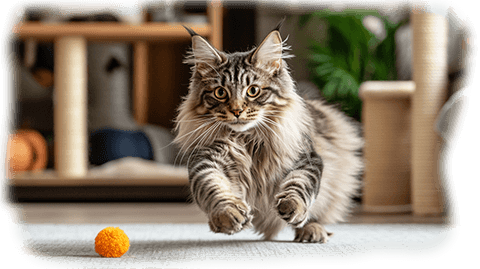
Grooming
- Maine Coons have long, thick fur that requires regular grooming to prevent matting and hairballs.
- Brush your cat’s coat at least twice a week to remove loose hair and reduce the risk of hairballs.
- Regular grooming also helps you monitor your cat’s skin and fur for any signs of health issues, such as parasites or infections.
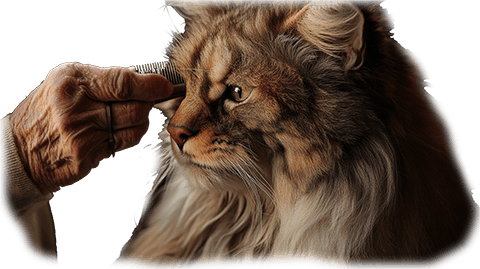
When to Visit the Vet
It’s essential to recognize the signs that your Maine Coon may need veterinary attention. Here are some symptoms to watch for that could indicate an underlying health problem:
- Lethargy or lack of energy
- Difficulty breathing or rapid breathing
- Limping or mobility issues
- Loss of appetite or vomiting
- Changes in behavior or hiding
- Difficulty using the litter box
- Excessive grooming or hair loss
If you notice any of these symptoms, schedule a visit to your vet as soon as possible to ensure your cat receives prompt treatment.
Conclusion
Maine Coons are affectionate and hardy cats, but like all pets, they need the right care and attention to stay healthy. By staying vigilant about common health conditions, providing preventive care, and knowing when to visit the vet, you can help your Maine Coon live a long, happy life.
Further reading: “The Complete Guide to Maine Coons: Finding, Preparing for, Feeding, Training, Socializing, Grooming, and Loving Your New Maine Coon Cat” (Amazon affiliate link) by Jordan Honeycutt.
Affiliate Disclosure
This post may contain affiliate links, which means I earn from purchases made through links. Please see the privacy policy page for more details.
